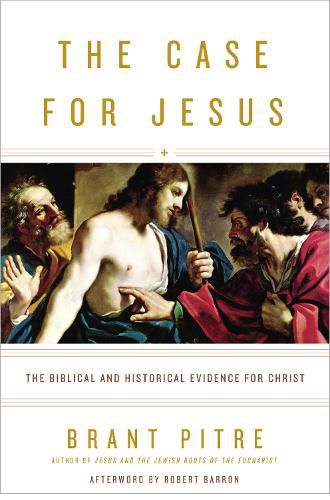Readings Newsletter
Become a Readings Member to make your shopping experience even easier.
Sign in or sign up for free!
You’re not far away from qualifying for FREE standard shipping within Australia
You’ve qualified for FREE standard shipping within Australia
The cart is loading…






Are the Gospels historically accurate, and can they be trusted? The bestselling author of Jesus and the Jewish Roots of the Eucharist provides an answer that will shock readers and undermine more than 100 years of biblical scholarship.
This book will prove to be a most effective weapon… against the debunking and skeptical attitudes toward the Gospels that are so prevalent, not only in academe, but also on the street, among young people who, sadly, are leaving the Churches in droves. - Robert Barron, author of Catholicism
For well over a hundred years now, many scholars have questioned the historical truth of the Gospels, claiming that they were originally anonymous. Others have even argued that Jesus of Nazareth did not think he was God and never claimed to be divine.
In The Case for Jesus, Dr. Brant Pitre, the bestselling author of Jesus and the Jewish Roots of the Eucharist, goes back to the sources-the biblical and historical evidence for Christ-in order to answer several key questions, including-
.Were the four
Gospels really anonymous?
.Are the
Gospels folklore? Or are they biographies?
.Were the four
Gospels written too late to be reliable?
.What about the
so-called Lost Gospels, such as Q and the Gospel of Thomas?
.Did Jesus
claim to be God?
.Is Jesus
divine in all four Gospels? Or only in John?
.Did Jesus
fulfill the Jewish prophecies of the Messiah?
.Why was Jesus
crucified?
.What is the
evidence for the Resurrection?
As The Case for Jesus will show, recent discoveries in New Testament scholarship, as well as neglected evidence from ancient manuscripts and the early church fathers, together have the potential to pull the rug out from under a century of skepticism toward the traditional Gospels. Above all, Pitre shows how the divine claims of Jesus of Nazareth can only be understood by putting them in their ancient Jewish context.
$9.00 standard shipping within Australia
FREE standard shipping within Australia for orders over $100.00
Express & International shipping calculated at checkout
Are the Gospels historically accurate, and can they be trusted? The bestselling author of Jesus and the Jewish Roots of the Eucharist provides an answer that will shock readers and undermine more than 100 years of biblical scholarship.
This book will prove to be a most effective weapon… against the debunking and skeptical attitudes toward the Gospels that are so prevalent, not only in academe, but also on the street, among young people who, sadly, are leaving the Churches in droves. - Robert Barron, author of Catholicism
For well over a hundred years now, many scholars have questioned the historical truth of the Gospels, claiming that they were originally anonymous. Others have even argued that Jesus of Nazareth did not think he was God and never claimed to be divine.
In The Case for Jesus, Dr. Brant Pitre, the bestselling author of Jesus and the Jewish Roots of the Eucharist, goes back to the sources-the biblical and historical evidence for Christ-in order to answer several key questions, including-
.Were the four
Gospels really anonymous?
.Are the
Gospels folklore? Or are they biographies?
.Were the four
Gospels written too late to be reliable?
.What about the
so-called Lost Gospels, such as Q and the Gospel of Thomas?
.Did Jesus
claim to be God?
.Is Jesus
divine in all four Gospels? Or only in John?
.Did Jesus
fulfill the Jewish prophecies of the Messiah?
.Why was Jesus
crucified?
.What is the
evidence for the Resurrection?
As The Case for Jesus will show, recent discoveries in New Testament scholarship, as well as neglected evidence from ancient manuscripts and the early church fathers, together have the potential to pull the rug out from under a century of skepticism toward the traditional Gospels. Above all, Pitre shows how the divine claims of Jesus of Nazareth can only be understood by putting them in their ancient Jewish context.